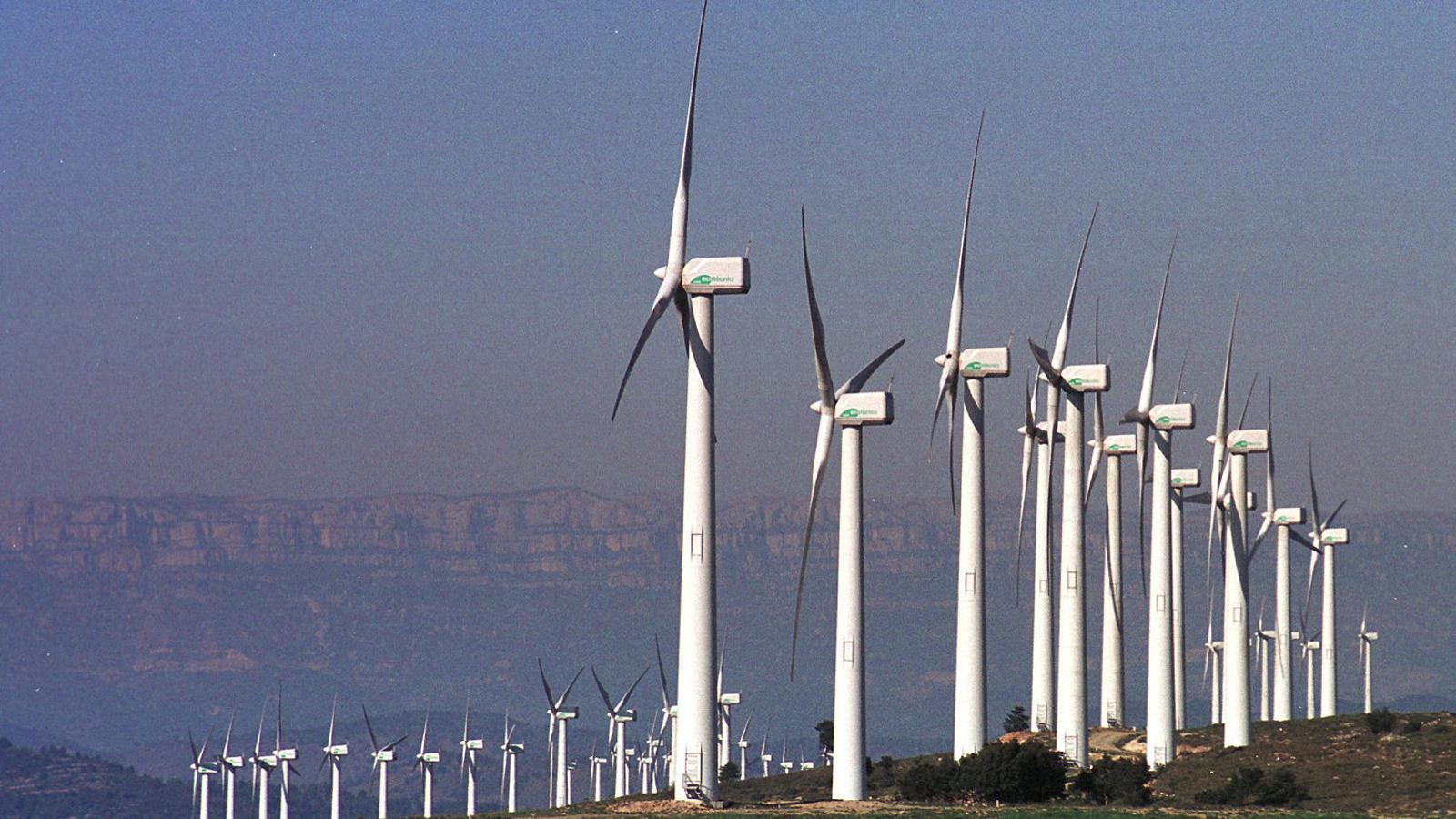Fears over Catalan energy dependence on Aragon
Renewable energy business associations ask the Generalitat to reflect on the country's energy future


BarcelonaThe Spanish Minister for Ecological Transition, Teresa Ribera, criticised the Catalan Government for not promoting renewable energies and recently wondered in an interview in La Vanguardia if Catalonia expects to depend on Aragon for its energy. In response, the Catalan Minister for Climate Action, Teresa Jordà, has promised to avoid energy dependence on Aragon and defends that Catalonia is committed to "its own model for energy transition".
The two main business associations in the renewable energy sector, however, agree with Ribera, and are critical of the Generalitat. "We are sleeping," summarises Jaume Morron, manager of the wind power business association Eoliccat, in reference to the development of renewables in Catalonia. And he is not optimistic about the future. In Catalonia, a total of 13.37 MW of wind power projects are currently under consultation, while in Aragon it is over 3,000 MW, which are to be connected to Catalan substations.
Morron assures that the underdevelopment of renewable energy in Catalonia "is a lost opportunity for rural areas". At the same time, he assures that, to bring electricity from Aragon to Catalonia, Red Eléctrica foresees some very high voltage lines that have never been built in Spain. A few lines that, in his opinion, "do not benefit the land", while developing wind farms "generates employment, although not much, and income". "We hope that the Government reacts, but I am not very optimistic," Morron summarises.
Somewhat more optimistic is the spokesman for solar energy business association Unefcat, Manel Romero. But he says that the criticism of the Minister Ribera does not surprise him. "It is what we have been saying for months," he says. Romero says Catalonia has three possibilities: either nuclear energy, dependence on Aragon, or making a firm commitment to renewables. "As a country it is an important reflection that we have to make," he says.
Romero believes the lack of progress in the development of renewables in Catalonia may have been solved in the last three months of the year with the new decree. "It seems that there has been a change in the last three months, but it is not a definitive step," he says. In fact, he believes it is too early to tell if the deadlock on green energy has been broken or not, although he is "more optimistic". It is based mainly on the fact that in recent months 600 MW of photovoltaic projects in Catalonia have gone on to public consultation. But despite this improvement for solar energy, he admits that the wind sector is much worse.
Nuclear and gas
Regarding the European Commission's taxonomy proposal to consider nuclear and gas as green energies, which the Spanish government has already rejected outright, Jaume Morron aligns himself with the Spanish government. "They are not sustainable [energy sources]," he says. The director of the wind energy business association , moreover, points out that all aid and investments that are devoted to nuclear energy will not be devoted to renewables. "We understand that you cannot turn off nuclear power from one day to the next," he says. On the other hand, the spokesman for the solar energy business association would rather not comment. "We do not position ourselves on other energy sources," says Manel Romero.
